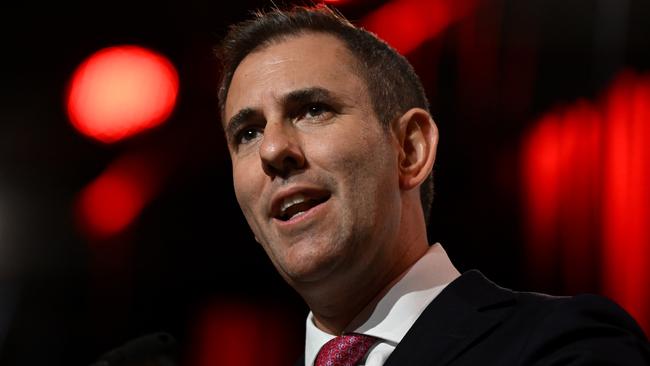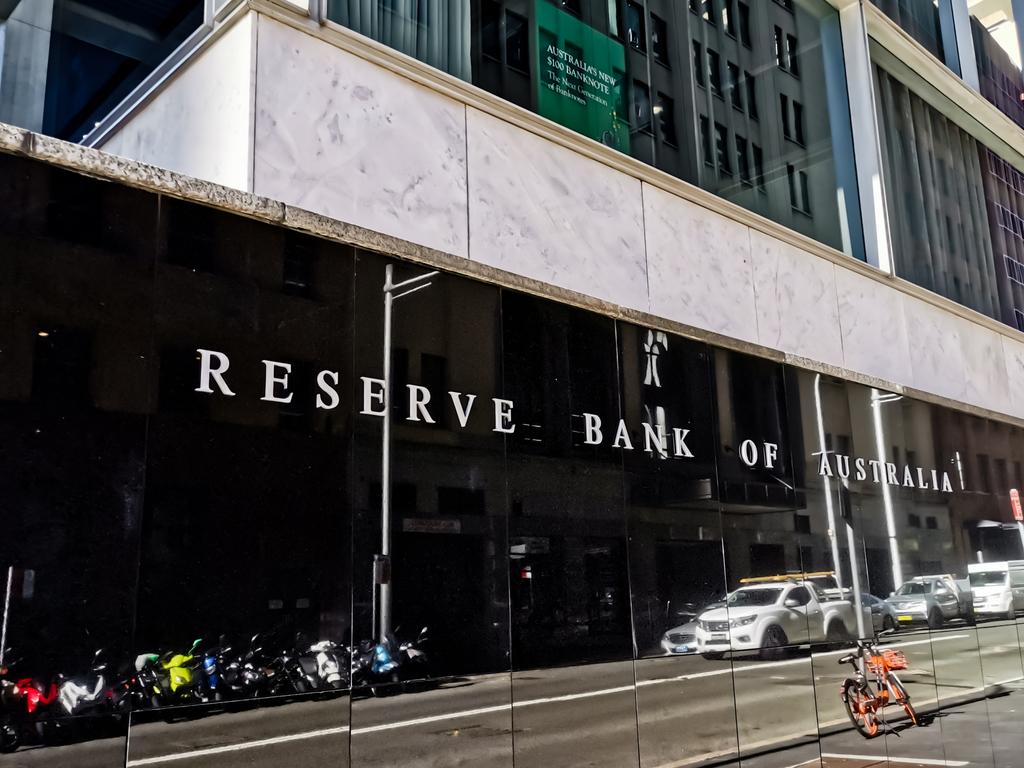Treasurer Jim Chalmers flags ‘substantial’ upgrade to tax take in budget and migration spike
Jim Chalmers has flagged a ‘substantial’ upgrade to the tax take in the budget, adding a flood of returning foreign students and tourists will turbocharge net migration.

Jim Chalmers has flagged another “substantial” upgrade to the national tax take in the May budget, adding a flood of returning foreign students and tourists will turbocharge net migration in this financial year to 350,000 – a third higher than anticipated just five months ago.
“We expect that our revenues will benefit substantially from elevated commodity prices and low unemployment,” the Treasurer said in a speech to the Business Council on Thursday morning.
But he said “the boost at this stage – and it could change – to this budget in May is unlikely to be as big as it was in October”.
The price of exports such as iron ore, coal and natural gas have remained materially and persistently above budget forecasts in recent years, leading to a welcome and predictable series of substantial revenue upgrades.
Dr Chalmers said “we adopt conservative assumptions for commodity prices when we’re putting together the budget”.
“There are good reasons to do that. That’s been appropriate and it remains my preference,” he added.
“But Treasury has come to us in recent times to propose that we look carefully again at those assumptions to ensure that the approach that we take is credible but still conservative.
“And they have indicated to me that they’ll be providing further advice on how best to reflect developments in commodity prices and the commodity markets in the budget as well.”
The October budget assumed a rapid return to long-term fundamental prices by March. Treasury estimated that delaying that collapse in prices by a single quarter would add $43.8bn to nominal GDP and nearly $10bn to tax revenues between 2022-23 and 2024-25.
And key commodity prices have again stayed high, even if energy prices have proved volatile.
Treasury assumed that the iron ore spot price would drop from $US91 per tonne to $US55 per tonne through the December and March quarters. Instead, prices have tracked between $US120 and $US130 this year. Thermal coal prices have halved this year, but are still around three times the $US60 per tonne assumed in the budget.

Rich Insights founder Chris Richardson said adopting a conservative approach to commodity price assumptions made sense, but that “that conservatism has become silly”.
“If Treasury is to maintain the same commodity price forecasts it would make sense at the very least to do two things: one is to get there a little slower than they usually assume, and the other would be to, in their sensitivity analysis, include a comparison between their forecasts and Consensus Economics’ long term forecasts” – and what the difference would imply for the tax take, he said.
Dr Chalmers said the “really key forecast” around net migration levels in 2022-23 suggested net migration levels were running a third higher than the 235,000 predicted in October.
“We are expecting substantially higher net overseas migration,” he said.
“But the important thing to think about when you contemplate that much higher number is that even with this short-term increase, net overseas migration would be smaller than what Treasury expected before the pandemic, with migration in net terms around 250,000 people less over the five years to June 2024 compared to pre-pandemic forecasts.
“What that means is that even with this big bounce in net overseas migration, we still haven’t caught up with what we lost in Covid and that’s why it will still take time to fill the gaps and the skills shortages that you’re all familiar with and we’ve talked about on multiple occasions – and it’s why we are continuing to invest in the kind of workforce that you need right around Australia.”
Dr Chalmers said the “key influences” which shaped the October budget would still be largely intact come May.
“The combination of difficult global conditions and higher interest rates are still expected to slow our economy substantially over the next two years,” he said.
“Inflation is still our primary challenge, there are still issues in supply chains and labour shortages, prices for services are still high and the rental market is especially tight.
“While our elevated commodity prices should provide another near-term boost to revenue, the budget still faces intensifying and compounding spending pressures from the big five pressures of interest costs, NDIS, aged care, health and defence.
Despite the obvious challenges, Dr Chalmers said we still had “a lot going for us”, including a “remarkably” low unemployment rate of 3.5 per cent, rising wages, and incredibly good prices for exports”.
“And there are common threads that tie the strategy of the last budget in October with the next one in May. We’re still working to find the best balance of near-term and longer-term priorities, the best combination of relief, repair and restraint, and putting a premium on the quality of spending not just the quantity,” he said.
“These were key to our strategy in October and they‘ll be key in May as well.”
In the wake of banking failures in the United States, the Treasurer said he was being briefed twice a day on developments in the global financial system.
“Our banks don’t have the same exposures as some of their US counterparts, they regularly hedge their risks, and the regime is much tighter since the global financial crisis as well,” Dr Chalmers said.







To join the conversation, please log in. Don't have an account? Register
Join the conversation, you are commenting as Logout